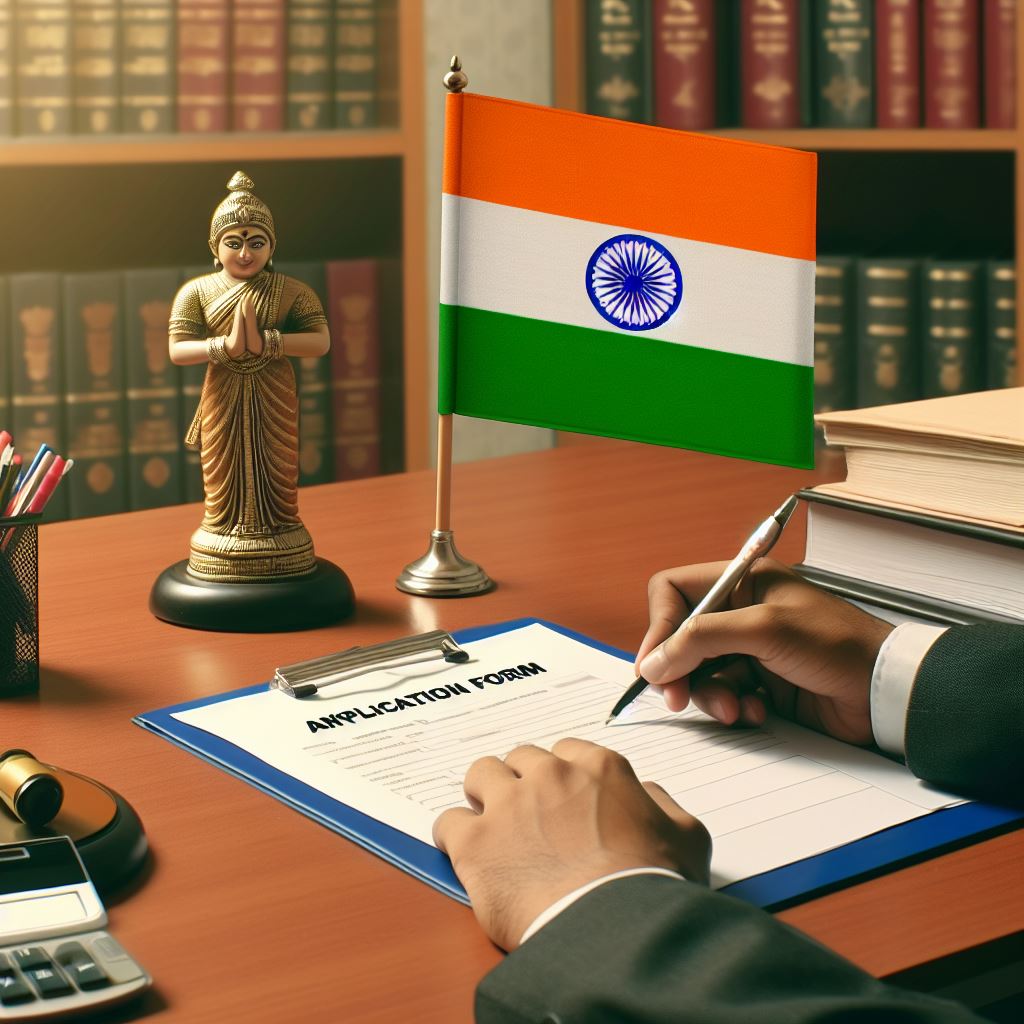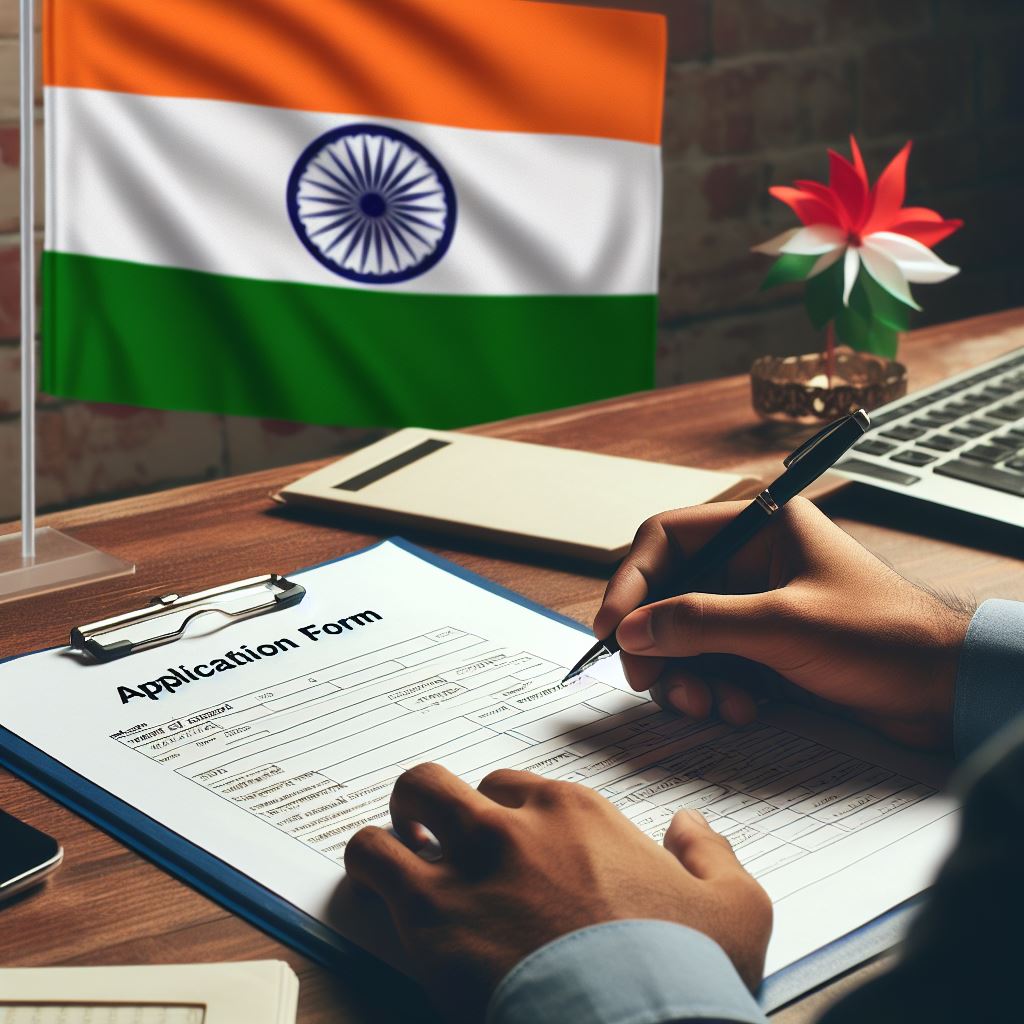
Learn about eligibility, documents required, and the application process for Indian Citizenship under CAA, 2019.
In recent years, the Citizenship Amendment Act (CAA) of 2019 has been a topic of significant discussion and debate in India. This act provides a pathway to Indian citizenship for certain religious minorities from neighboring countries. Understanding the application process for Indian citizenship under the CAA is crucial for those seeking to avail themselves of this opportunity.
The Citizenship Amendment Act (CAA), 2019 provides a path to Indian citizenship for certain undocumented immigrants from Afghanistan, Bangladesh, and Pakistan. This article serves as a comprehensive guide for those seeking to apply for Indian citizenship under the CAA.
Who Can Apply Indian CitizenshipUnder CAA 2019?

The CAA streamlines citizenship for persecuted minorities from the aforementioned Muslim-majority nations. To be eligible, you must meet all the following criteria:
- Belong to a Hindu, Sikh, Buddhist, Jain, Parsi, or Christian community.
- Entered India on or before December 31st, 2014.
- Faced religious persecution in your country of origin (Afghanistan, Bangladesh, or Pakistan).
- Possess proof of residence in India for at least five years before applying.
Required Documents
The Ministry of Home Affairs (MHA) mandates specific documents for a CAA application. Here’s a breakdown of what you’ll likely need:
- Proof of Identity and Community: Passport from Afghanistan, Bangladesh, or Pakistan.
- Residence Proof: Registration Certificate or Residential Permit issued by the Foreigners Regional Registration Officer (FRRO) or Foreigners Registration Officer (FRO) in India.
- Date of Birth: Birth certificate issued by a government authority in your origin country.
- Persecution: Documentary evidence to substantiate religious persecution faced in your home country. This could include affidavits, police reports, or news articles.
- Residence in India: Documents like rent agreements, utility bills, or school certificates demonstrating five years of continuous residence.
The Application Process

The Indian government has launched a dedicated online portal (https://indiancitizenshiponline.nic.in/) for submitting CAA applications. You can also apply through a mobile app called “CAA-2019” (availability to be confirmed).
The application process involves the following steps:
- Registration: Create an account on the online portal using a valid email ID and mobile number.
- Application Form: Fill out the online application form carefully, providing accurate details about yourself, your community, and your reasons for seeking citizenship.
- Document Upload: Upload scanned copies of all the required documents mentioned earlier.
- Fee Payment: Pay any applicable fees associated with the application process (fees not yet confirmed).
- Verification and Scrutiny: Government authorities will verify your documents and assess your eligibility based on the CAA provisions.
- Biometric Registration: If your application progresses, you’ll be called for fingerprint and iris scan registration.
- Citizenship Interview: You may be interviewed by officials to determine your understanding of India and your intentions for seeking citizenship.
- Decision and Granting of Citizenship: The government will communicate its decision on your application. If approved, you’ll receive a citizenship certificate.
Important Considerations
- The CAA application process is relatively new, and procedures might evolve. Stay updated by checking the official government website (https://indiancitizenshiponline.nic.in/).
- The onus of proving persecution and residence lies with the applicant. Gather strong documentary evidence to support your claims.
- Seek legal guidance from an advocate specializing in immigration law for assistance with the application process and navigating complexities.
Frequently Asked Questions (FAQ) about Indian Citizenship Under CAA, 2019
Who is eligible to apply for Indian citizenship under the CAA, 2019?
Individuals belonging to Hindu, Sikh, Buddhist, Jain, Parsi, or Christian communities from Afghanistan, Bangladesh, and Pakistan who entered India on or before December 31, 2014, are eligible to apply.
What documents are required for the application process?
Applicants need to provide proof of identity, proof of residence, and supporting documents to establish their eligibility under the CAA.
How long does the application process take?
The processing time for applications can vary, and applicants are advised to stay updated on the status of their application through the designated channels.
Can family members be included in the application?
Yes, family members of the primary applicant can be included in the application for Indian citizenship under the CAA, subject to meeting the eligibility criteria.
What happens after the application is submitted?
After submitting the application and required documents, applicants may be called for an interview or asked to provide additional information as part of the verification process.
Conclusion
The Citizenship Amendment Act, 2019, provides a unique opportunity for eligible individuals from specific religious minorities in neighboring countries to apply for Indian citizenship. Understanding the application process, gathering the necessary documents, and staying informed about the progress of the application are crucial steps in this journey. By following the guidelines and requirements set forth under the CAA, applicants can navigate the process smoothly and work towards acquiring Indian citizenship.
In conclusion, the CAA, 2019, represents a significant development in India’s citizenship laws, offering a pathway to citizenship for individuals facing persecution in their home countries. As the application process continues to unfold, it is essential for interested individuals to familiarize themselves with the requirements and procedures to make informed decisions regarding their citizenship status in India.
Read More: The Indian Community Welfare Fund

